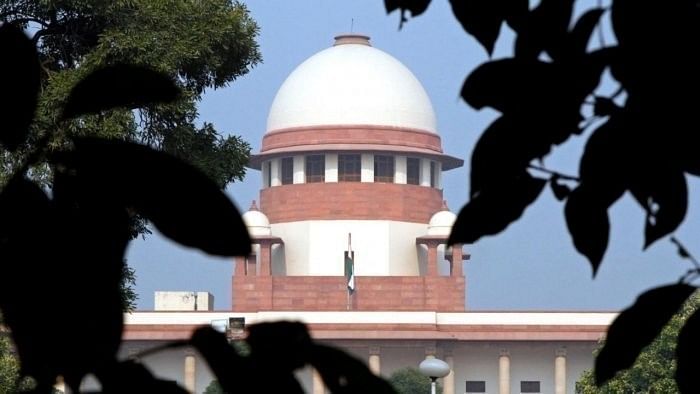
The Supreme Court of India.
Credit: PTI File Photo
New Delhi: The Supreme Court has ordered a CBI probe into the death of the wife of a senior member of higher judicial service in Chhattisgarh on May 12, 2016 in order to dispel doubts in the minds of her family members and ensure a fair investigation particularly in view of six ante mortem injuries upon her.
A bench of Justices Vikram Nath and Prasanna Bhalachandra Varale said a thorough, fair and independent investigation needs to be carried out to find out the truth about the whole incident.
"It is true that power to direct CBI to conduct investigation is to be exercised sparingly and such orders should not be passed in routine manner," the bench said.
The court, however, noted that the aggrieved party here has raised allegations of bias and undue influence on the police machinery of Chhattisgarh.
The family members of deceased Ranjana Diwan, who worked as Assistant District Prosecution Officer in Dantewada, claimed it was not a case of simple suicide and there was something fishy due to injuries on her body.
"Considering the fact that the respondent no 7 (Manvendra Singh) is a senior judicial officer any doubt or apprehension in the minds of the appellants who have lost their family member may be dispelled by the investigation being carried out by CBI. This may result into doing complete justice and enforcing the fundamental right of getting a fair investigation," the bench said.
In its judgment on September 6, the court set aside Chhattisgarh High Court's May 10, 2023 judgment, which rejected the plea by Mandakini Diwan, the mother of the deceased for investigation.
The bench directed the CBI to carry out complete and fair investigation and proceed in accordance with law and that too expeditiously considering the fact that the incident is of 2016, and submit a report to this court.
The deceased and the judicial officer were known to each other since 2010. They got married in 2014 after his selection into the higher judicial service in 2013.
The family members alleged the judge managed the post mortem report in which the cause of death was shown to be suicide by hanging, despite six ante mortem injuries.
Till date, neither an FIR has been registered on their several complaints nor a fair investigation has been carried out due to influence of the judicial officer, they said.
They also stated their writ petition filed in the High Court remained pending for about seven years. They contended the High Court dismissed their plea for probe with liberty to approach a magistrate court under Section 156(3) of the Criminal Procedure Code.
They said they had little hope rather no hope of getting any justice from the court of a Magistrate who would be an officer subordinate to the husband of the deceased.
The state counsel, on the other hand, said the appellants were unnecessarily doubting the credibility of the investigating agency of Chhattisgarh, which amounts to putting a blame not only on the judicial officer but also on the entire police machinery. The state government also claimed every complaint filed by family members was closed after thorough probe only.
A counsel for the judicial officer claimed he was unnecessarily targeted by the appellants for ulterior motives. All their complaints were rightly closed upon finding no incriminating materials against him, he said.
Solicitor General Tushar Mehta for the CBI suggested the court may consider appointing a high-level Special Investigation Team or may direct the CBI to investigate the matter as this will provide credibility and instill confidence not only in the aggrieved party but also in the society at large.
